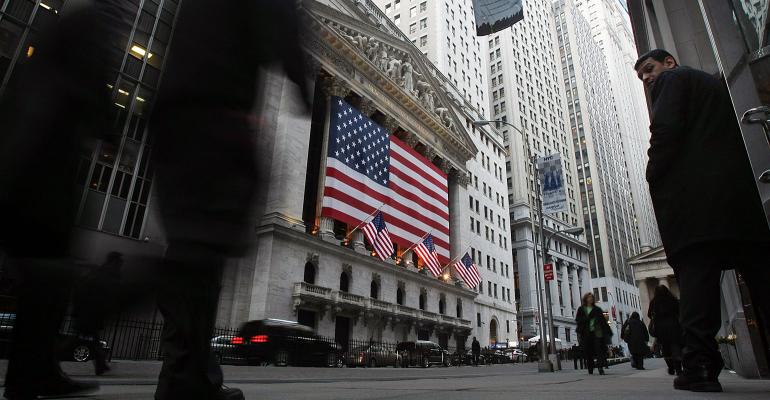By Annie Massa
(Bloomberg) --The New York Stock Exchange is taking over a tiny 131-year-old market that Bernie Madoff helped turn into a pioneer of electronic trading.
NYSE’s parent, Intercontinental Exchange Inc., didn’t disclose how much it’s paying for the National Stock Exchange, which last week announced plans to close Dec. 16. It’s a minuscule business, handling only 0.01 percent of U.S. stock trading versus almost a quarter at markets owned by NYSE.
Founded in 1885 as the Cincinnati Stock Exchange, the National Stock Exchange is a throwback to the days when regional exchanges flourished across the nation. Now based in Jersey City, New Jersey, it never got big. But with financial backing from Madoff, it became the first all-electronic stock market in 1980, starting a trend that’s nearly complete today where exchanges live inside computers, not on trading floors filled with brokers.
Its electronic system made it cheaper for firms to trade NYSE-listed stocks, letting them circumvent the human specialists and fees associated with trading on the Big Board.
“NSX will continue to operate as a trading-only venue serving market participants’ needs as they evolve,” Tom Farley, president of NYSE Group, said in an e-mailed statement. Mark Sulavka, chief executive officer of the National Stock Exchange, didn’t respond to phone or e-mail requests for comment.
NYSE didn’t explain its rationale for the deal, though it comes at a time when competitors are experimenting with different business models for trading. Having another exchange license gives NYSE a place to test out ideas.
One trend it could consider: the “inverted” pricing model used by three exchanges owned by Nasdaq Inc. and Bats Global Markets Inc. Most stock exchanges pay traders who supply liquidity and charge those who remove it from them -- a practice known as maker-taker. The three taker-maker markets at Nasdaq and Bats flip who pays and who gets rebates, and their combined share of trading has grown to about 15 percent of trading on U.S. exchanges, according to data compiled by Bloomberg.
“We suspect that brokers may be changing their attitude toward inverted venues and voluntarily using them more,” Andrew Upward, an analyst at Weeden & Co., wrote in a recent report on the trend.
The National Stock Exchange shut in May 2014 and was relaunched last year with its own pricing tweaks. It eschewed maker-taker pricing, charging parties that removed orders from its book, without offering rebates to liquidity providers. But the plan didn’t amount to much, leaving the company stuck at the bottom of the heap among U.S. exchanges.
NYSE also picks up one more vote on the committee the governs the critical market data feeds that power stock trading.
To contact the reporter on this story: Annie Massa in New York at [email protected] To contact the editors responsible for this story: Nick Baker at [email protected]





